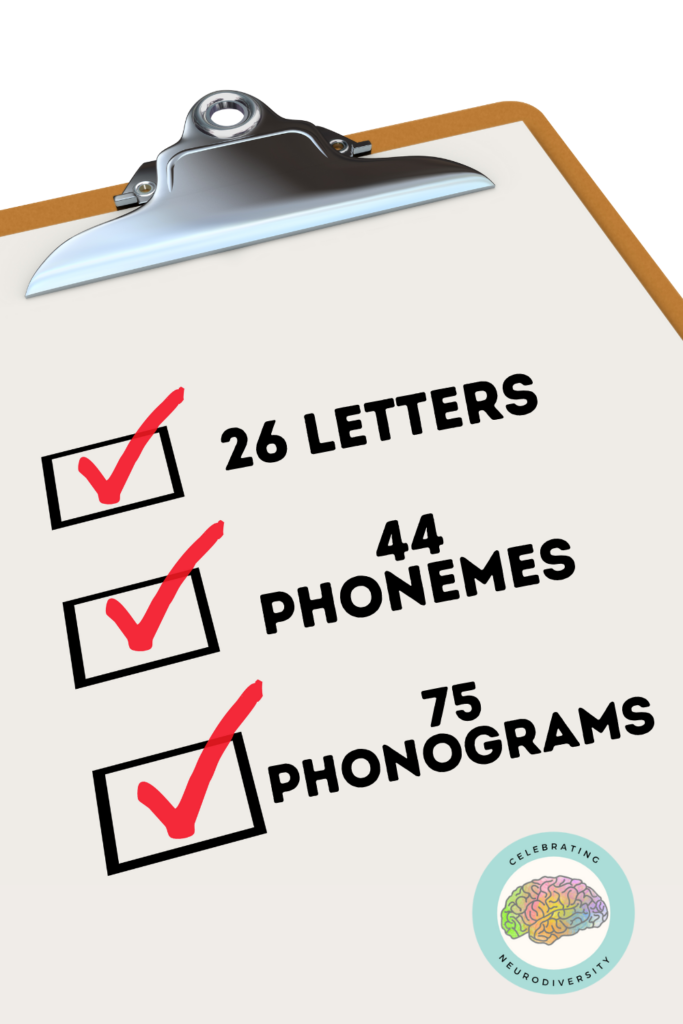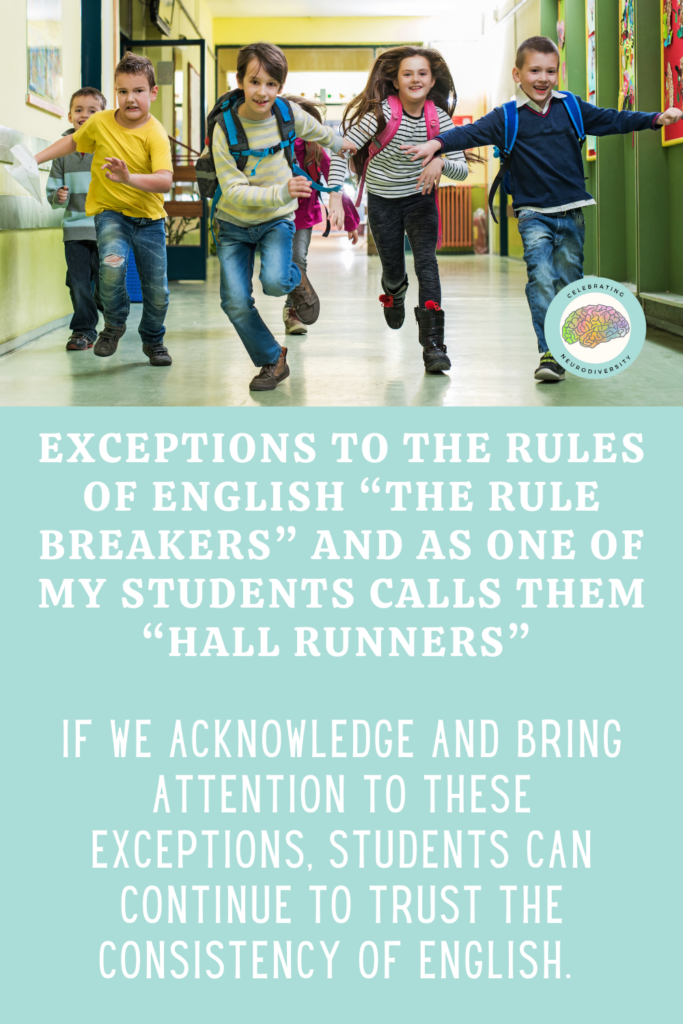There is a myth that English is inconsistent, illogical, and has too many exceptions to the rules. In actuality, English is more reliable than you may think. Only about four percent of English words are truly irregular.
Reading Problems
Although English is predictable, children aren’t learning the rules and most are not proficient readers. According to the Nations Report Card (NAEP), 65% of 4th graders scored below proficient in reading. Exposure to quality texts is important to reading development and has been the focus of current reading practices but these statistics show that it isn’t enough. Students need to be taught HOW to read. Research has shown that children can be proficient readers if they learn how to read through explicit and informed instruction.

Reading and the Brain
Our brains are not wired to read at birth but they are wired to learn. Brain imagining technology has shown that with intensive phonics instruction, we can train the brain to develop the appropriate pathways to become proficient readers.

The Basics
Let’s start with the basics. English is made up of 26 letters. These letters individually or combined create approximately 44 sounds (phonemes). The 44 sounds can be spelled (phonograms) in 75 basic ways.
Reading and spelling of words is based not only on the phonemic representation but also the meaning of the words. English is phonemic (the sounds) but we must also look at the morphology (meaning of the word parts) and the interaction between them. The English language is a melting pot of languages with strong influences of Anglo-Saxon, Latin, and Greek. Knowing these languages of origin is very beneficial.
Language rules also play into our understanding and application of English. For example, when does c say /k/ and when does c say /c/? C always changes its sound to /s/ when followed by e, I, or y. Otherwise, C will say /k/. This rule explains over 9,000 words.
Learning the 75 phonograms, meaning of words, and predictable rules are the key to reading success.
Rule Breakers
Unfortunately, a few common words students use early in their reading journey such as does and been do not follow the rules. These words are often the oldest words in the English language and their pronunciations have changed over time.
Most irregular words contain only one feature that is irregular with the rest of the word regular or consistent with the rules.

Empower Learners
As teachers with knowledge of reading, spelling, and literacy, we can empower students to understand and solve the code. We can bring order to the perceived chaos and help student embrace the abundance of our language.
We want to encourage curiosity. Students find it fun to learn new rules that teach them how English works, even “mind blown” sometime. Many of my students want to prove the rules wrong or find exceptions. They come to literacy sessions with questions about words they have encountered over the week and are seeking answers to find order. I embrace their curiosity and work we together to find answers.
As we talked about above, there are exceptions to the rules. As I call them “the rule breakers” and as one of my students calls them “hall runners.” If we acknowledge and bring attention to these exceptions, students can continue to trust the consistency of English.

Are you Looking to Learn More?
There are many resources available to help you learn more about making sense of the English language.
- Uncovering the Logic of English by Denise Eide This book is a great starter guide. The website also has many resources.
- The ABC’s and All Their Tricks by Margaret M. Bishop This book is an amazing reference book for spelling and phonics. It has every spelling for every sound!
- Speech to Print by Louisa Cook Moats This book gives you an in-depth look at the structure and function of language.
I do receive a small commission from the purchases made through links in this post. This is at no additional cost to you.
I hope I debunked the myth that English is inconsistent, illogical, and has too many exceptions to the rules. English really is more reliable than you may have thought. Learning the rules of English is so helpful and in some cases critical to student learning.









One Response